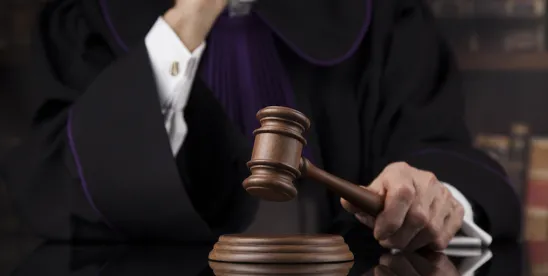Whenever lawyers use expert witnesses, there is a newly emerging issue to take into account. If an expert witness has leaned into generative AI usage such as ChatGPT to aid their analyses, doing so could materially undercut the expert witness’s opinion and ultimately sink the legal case at hand.
That can be a good news or bad news affair.
If your expert witness improperly relies on generative AI outputs, it could knock the air out of your most cogent legal arguments. On the other hand, if the opposing side's expert witness falls into this AI trap, you may have landed a potential goldmine. In the modern age of AI, a new strategy of besmirching and undermining an otherwise unimpeachable expert witness has come to the forefront.
Why would an expert witness's reliance on generative AI be so controversial?
Because generative AI and large language models (LLMs) are known to produce erroneous results and AI hallucinations that generate seemingly correct but entirely baseless and groundless outputs.
October Surprise In A New York Case
An expert witness’s overreliance on generative AI reached national news in October during an otherwise routine case in New York.
In Matter of Weber, 2024 NY Slip Op 24258, an expert witness used the Microsoft Copilot generative AI app to calculate potential monetary damages related to the alleged delay in the sale of a disputed rental property. Upon questioning, the expert witness admitted he lacked an understanding of how generative AI worked. The expert could not cite any actual sources of data that the AI used to arrive at the generated results, and he was unable to recall what prompts he used to get the AI-derived figures.
The judge in the case assessed the matter closely, even going so far as to try the Microsoft Copilot app himself.
The credibility of the expert witness fell apart.
Ultimately, the judge found that the lack of cross-checking led to spurious results and that reliance on the generative AI app had undermined the opinion rendered by the expert witness. The case went in favor of the opposing side (note that other assorted legal factors played into the judgment and that the AI aspect was one of several missteps).
One especially mentionable aspect was that the expert witness defended his efforts by observing that generative AI usage by expert witnesses has been growing and will gradually become a common practice.
Savvy lawyers need to prepare for AI usage by expert witnesses.
When Your Expert Witness Uses Generative AI
To avoid the fate of the expert witness in Matter of Weber, here are key tips to prepare your expert witness.
First, ask each expert witness whether they intend to use generative AI. If so, find out if they are aware of the potential pitfalls of such usage. How will they ensure that the AI results are reliable and accurate? Will the expert witness be able to stand up to harsh questioning about the nature of their reliance?
Second, do not let the expert witness wave away any concerns about AI usage. Many expert witnesses are strong-willed and believe that what they do is ironclad. This same abundance of confidence carries them into acting as though they are proficient in AI usage. However, their knowledge of AI may, in reality, be limited. That’s just not their core competency.
Third, even if an expert witness does not anticipate using generative AI, they might end up doing so as the case progresses. Any initial conversations about cautions on using AI will have long receded in their mind. It is best to recheck with the expert witness throughout the case, especially before the other side potentially springs the question.
When The Opposing Side’s Expert Witness Uses Generative AI
While you engage in diligent vetting of your own expert witnesses, it is likely that your opposing counsel may not. This provides you with an opportunity to undermine your opponent’s case.
Very few lawyers know that they should review whether their expert witnesses have relied upon AI. The assumption is that an expert witness wisely chooses the tools they believe are required for performing their work. Furthermore, it is typically assumed that the expert witness can suitably defend why they used the tool and how the tool supports their results.
This is your chance to poke holes in the opposing side.
You can raise serious doubts about the opinions rendered by their expert witnesses. It could be enough to shift the direction of the case or at least knock your opponents back on their heels.
Even if the expert witness did not use any AI, the question will not usually register with opposing counsel since they won’t realize what you were secretly digging for. It will pass like a subtle cloud in the night.
If an expert witness did make use of generative AI, you would aim to shake loose the nitty-gritty details. Which generative AI app did they use? When did they use it? How many times? What prompts did they use? Do they know what data the AI relied upon? Did they double-check the results?
With each additional question, you can cut into the expert’s credibility and methodology to break down their opinion.
The Dual-Edged Sword Is At Play
A downside to openly asking and probing about generative AI usage is that doing so could inadvertently bolster the opinion of an opposing side expert witness. Assuming you can’t find any weak spots, the overall impression might be that the expert witness did outstanding work, and thus, their analysis is even stronger than already presumed.
Plus, not everyone is aware of AI's failings. Indeed, some harbor a false belief that AI is a modicum of perfection. An expert witness that might be otherwise bland could end up suddenly harkened due to their AI usage. The aura of AI perfection gives the human expert a bundle of bonus points. You certainly don’t want that to happen.
This consideration is indubitably a dual-edged sword, and you’ll need to gauge whether and when to employ it.
A final remark for now. You have undoubtedly heard about lawyers who inappropriately rely on generative AI and have gotten themselves into hot water for doing so. New instances of this keep popping up. The same troubles are beginning to seed the expert witness community.
As a lawyer, you are obligated to vet and prepare your expert witnesses.




 />i
/>i

